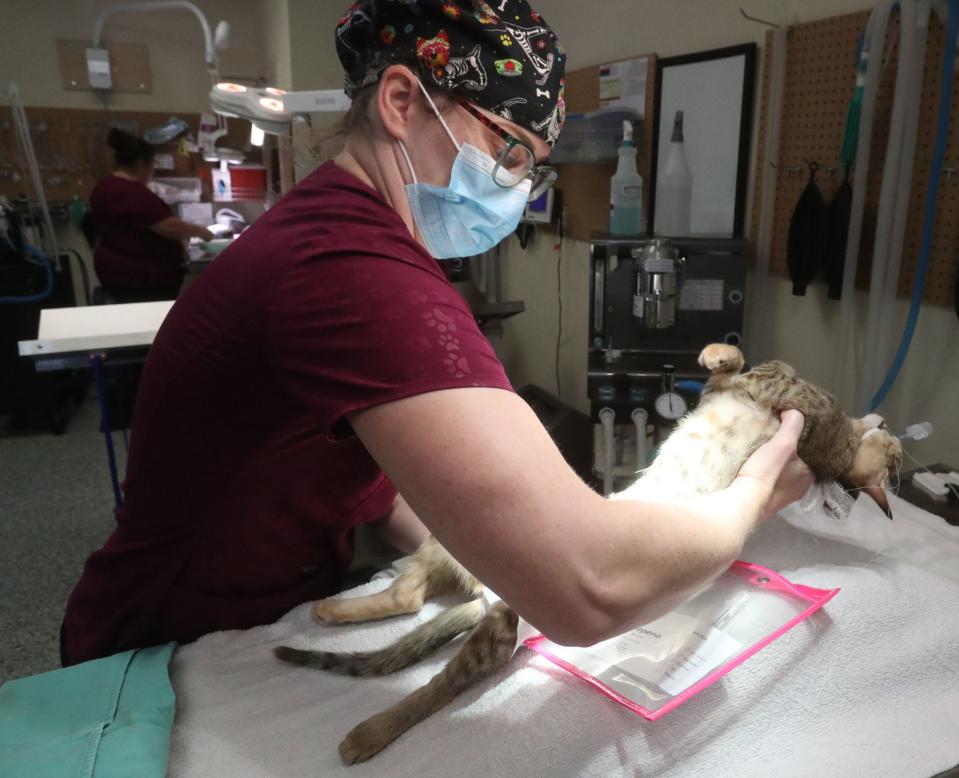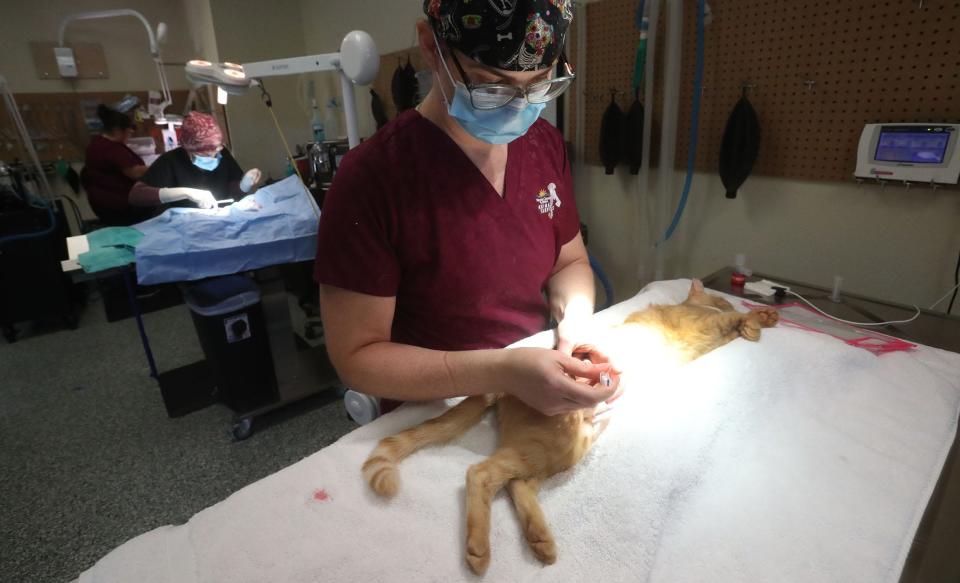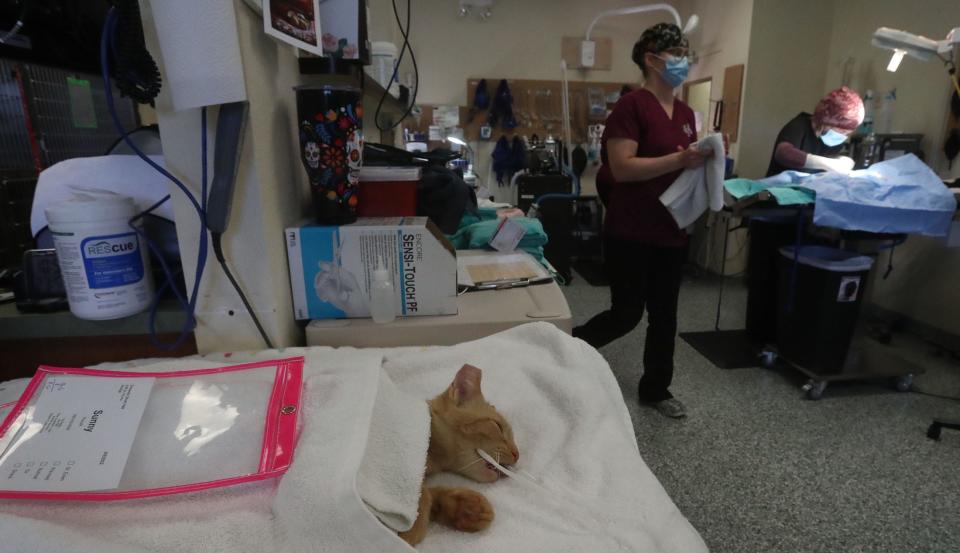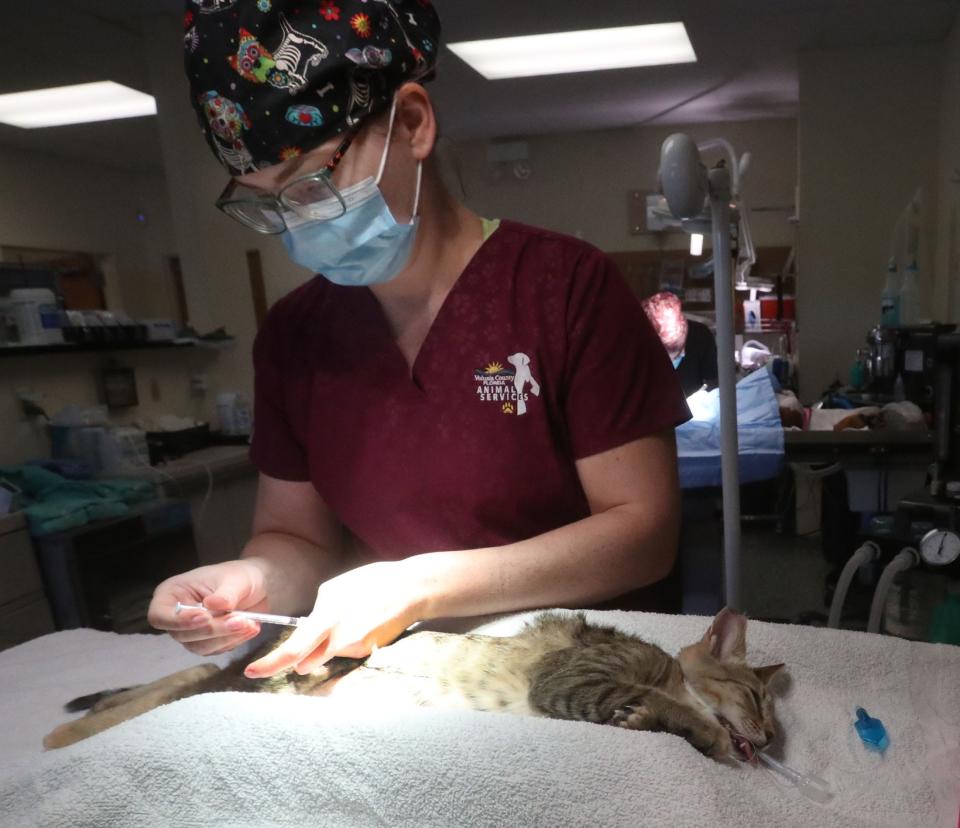Volusia Animal Services receives $10,000 donation to help with spay/neuter program costs
DAYTONA BEACH — When residents bring stray cats to Volusia County Animal Services, they must pay $45 to have them spayed or neutered.
But thanks to a recent $10,000 donation from a Florida nonprofit, that cost will be waived, allowing the agency to care for more community cats.
The agency’s trap-neuter-release program helps reduce both the feline population and cat euthanasia. Last year, according to Volusia County spokesman Gary Davidson, animal services performed 1,739 TNR surgeries at its clinic on Indian Lake Road in Daytona Beach; the agency has done more than 500 so far this year.

Humane Society: NSB partners with Humane Society to try to find homes for feral cats
Manatee crisis: Manatee found in roadside canal dies in NSB; more than 150 have died in 2022
Coming soon: Marine Science Center in Ponce Inlet to open new 650-square-foot bird habitat exhibit next year
“The county’s TNR program already has shown proven results,” said Animal Services Director Adam Leath in a press release. “The good news is that the grant funds will enable us to provide even more service. Every TNR surgery is an animal life saved.”
The donation comes from the Maitland-based nonprofit Franklin’s Friends. Its mission is “to support Central Florida animal welfare by awarding grants to local nonprofit and government agencies that are dedicated to shelter/rescue, spay/neuter, and community education programs,” according to the organization’s president, Monisha Seth.
“We think (Volusia Animal Services has) done a great job in educating the public about the importance of TNR and ensuring that TNR resources are available to their residents,” Seth wrote in an email to The News-Journal. “Too often the community cat program is dealt with reactively rather than proactively, and Volusia has done a great job in making TNR a priority.”
In an interview, Leath said that “there’s an overwhelming need for access to care – specifically veterinary care – across the country.”
“We have a huge veterinarian shortage and lots of challenges facing pet owners now," he said.

Besides the issue of some residents’ inability to transport stray cats to local clinics, the financial burden is also a major challenge and the main motivation for the recent grant.
Animal services specifically applied for the Franklin’s Friends grant in part because the division wants to provide the service to county residents without the $45 fee.
He said that many cities in Volusia County often require the service for cats in their communities, but “those residents do not actually pay toward any type of funding for our division.”
“We actually do not receive any funding from the cities, yet there are a lot of pets that live in the cities that need help,” he said. “We are providing (TNR service) to the cities, who cannot typically have that service themselves, because they have to pay for it. We wanted the cities to have the same access as our county residents do for TNR, and we want to do it at no cost to them.”
How TNR benefits communities
TNR programs, Seth explained, “are the most humane and effective way to reduce the number of community cats, decrease fighting among the cats, and decrease the spread of feline disease.”
Leath said that controlling the stray cat population benefits the environment, and emphasized that it reduces the chance of diseases like rabies spreading in the community.
“Imagine if a family member or loved were trying to interact with a cat and got bitten or scratched,” Leath said. “If that cat had rabies, now you have to worry about exposure to your loved ones.”
Leath said that besides the sterilization procedure, the agency vaccinates the animals brought to the clinic.

Decreasing costs and new mobile hospital
Leath explained that there is no way of estimating how many stray cats roam around in the county, but he has seen indications that the population is decreasing.
“What I can tell you is that we measure how many animals are being brought into (county shelters),” he said. “What we have seen is a dramatic decline — so far this year, there has been a 50% reduction in the cost associated with sheltering when compared to last year.”
It costs taxpayers $100 to shelter a pet for three days. Nationally, less than 1% of cat owners reclaim their pets in shelters, Leath said.
“So if we know the best practice is not to bring (the cats) into a shelter, then sterilization is the best alternative,” he said.
In addition to providing funds for more cats to receive the procedure, the grant will also help animal services decrease the wait time for residents to get the service.

Animal services will soon begin operating a new 38-foot bus mobile hospital, which the county paid for, that will contribute even more to the agency’s efforts in Volusia County. Leath said he “can’t wait for residents to see the new asset.”
“This mobile hospital brings the life-saving work that we do at our stationary clinic on the road,” Leath said.
He said that animal services staff usually have to go out and bring animals one by one because residents often don’t have the ability to transport them to the clinic.
“I want to bring the ability to do spay/neuter right into the community, park this mobile unit into these communities that need us the most, and all they have to do is walk to the bus.”
This article originally appeared on The Daytona Beach News-Journal: Volusia's feral cat population receives aid with $10K donation

